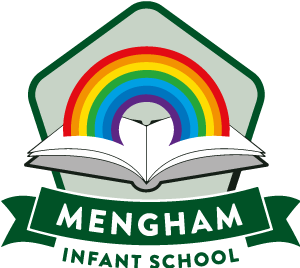Safeguarding
Safeguarding at Mengham
Safeguarding, or Child Protection as it is also sometimes called, is a key priority of all schools and something we are required to monitor closely in line with legal requirements set out in the document Keeping Children Safe in Education September 2022.
As the name implies safeguarding is all about keeping children safe from any type of harm. This could be physical abuse, sexual abuse, emotional abuse, neglect or any form of radicalisation.
Sadly, we still hear regularly of cases in the news where children have been let down by professionals who have been working with them and where concerns have not been addressed until it is too late and that is why our staff take their safeguarding responsibilities very seriously.
Every school has a Designated Safeguarding Lead (DSL). This is a member of staff who has attended comprehensive Safeguarding training and is responsible for ensuring that all staff are aware of their safeguarding duties. In our school, Mrs Burnett is the DSL. Mr Young has also taken part in all his Designated Safeguarding training and is, therefore, able to deputise for Mrs Burnett when she is out of school.
All staff and volunteers in our school receive Safeguarding training and are asked to report any concerns they have about a child or parent’s safety to the DSL so that they can decide what our next steps need to be. All concerns are recorded on a computer based system called CPOMS. If any parent has a concern about a child they are advised to speak to the DSL in school, who can advise them of possible next steps.
Wherever it is safe to do so and is felt not to cause any further risk to the child, the DSL will speak to parents regarding any concerns that have been raised. Concerns that could lead to a child or parent being considered “at risk of threat or harm” will be reported to Children’s Services as part of our legal duty. Where it is felt that talking to parents before informing Children’s Services would put a child at further risk or cause an investigation to be obstructed, the school will ring Children’s Services without first talking to the parent or carers. Children’s Services will then decide how they want parents to be informed and the school will follow their advice. We are then unable to talk to parents about the concerns until any following investigation has been undertaken.
We understand that parents and carers may find conversations around these concerns upsetting and difficult and may even feel it is a personal attack against them but our priority will always be around keeping children safe and we, therefore, have a duty to take all concerns seriously. We try to keep these conversations as objective as possible, dealing only with facts, in the hope that it helps parents and carers to see that this is not a judgement but an opportunity to share important information. We also understand that children’s interpretation of events may differ from that of adults but again are sure you will agree that our priority must be the child’s version of events in the initial instance.
Ultimately, we would hate anything to happen to a child because we didn’t act appropriately and therefore would hope that all members of our school community fully understand why we need to follow the procedures we do.
However, safeguarding is not just about the reporting of concerns. Safeguarding is also about ensuring that children are actively taught how to keep themselves safe, are provided with a safe environment and that the adults around them are able to model effective safeguarding.
For this reason, we have worked with our subject leaders to ensure that our Safeguarding curriculum is embedded across school and provides the children with opportunities to learn how to keep themselves safe. (see attachment below)
Wider Safeguarding is monitored annually by all stakeholders to ensure that all our children are provided with the level of care and safety they deserve.
